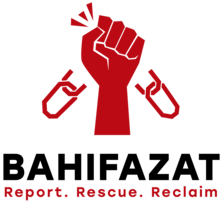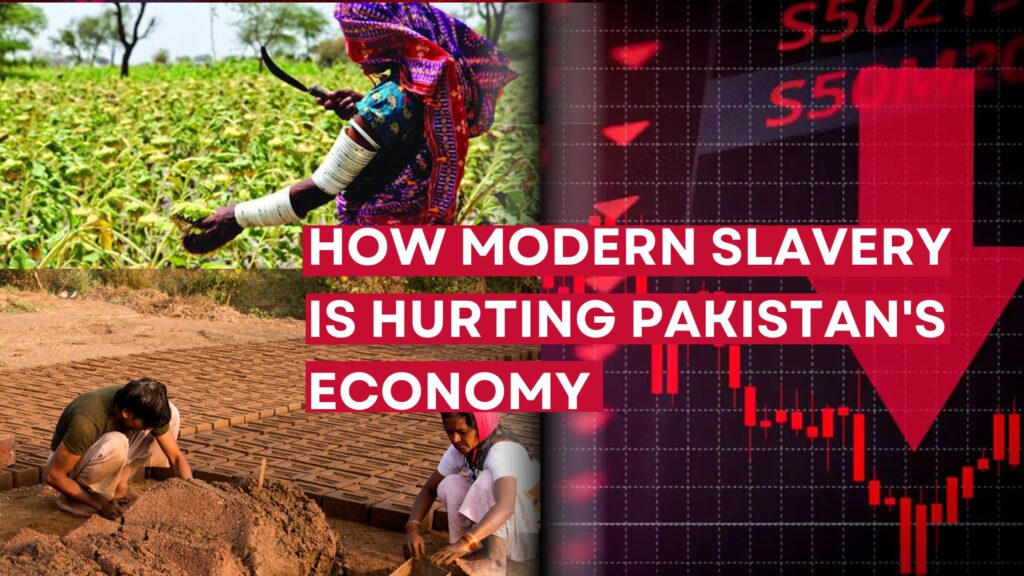Modern slavery isn’t just a human rights crisis—it’s an economic catastrophe hiding in plain sight. In Pakistan, over 2.3 million people are believed to be trapped in modern slavery, according to the Walk Free Foundation’s Global Slavery Index. This places us among the top four in Asia. But this isn’t just about injustice—it’s about lost national potential.
From the brick kilns of Punjab to domestic households in cities and farms in rural Sindh, forced labour, bonded debt, and child exploitation persist in forms that are normalized—because they’re invisible. Often, we only view the issue through a legal or moral lens. But there’s another side we don’t talk about: the economic costs.
🎯 Modern slavery is not just a human tragedy—it’s an economic system that rewards perpetrators and punishes society.
It deepens poverty, drains public resources, and creates long-term dependence. And because it lowers productivity and damages our global trade relationships, it slows national development.
📉 Consider this: a person in forced labour produces, on average, 60% less in value as compared to a free, trained worker.
When millions work below capacity or in exploitative environments, we lose billions in productivity, innovation, and taxes.
🌐 Pakistan’s Tier 2 ranking in the U.S. State Department’s Trafficking in Persons Report means we still need to do a lot. If we slip to Tier 3, we risk losing non-humanitarian foreign aid.
The EU’s GSP+ trade benefits also require us to show serious commitment against forced labour. If these preferences are withdrawn, our exports could suffer badly.
🏥 Then come the hidden costs: state funds spent on rehabilitation, victim protection, health care, law enforcement, and prosecution. These are massive fiscal burdens that grow with every year the issue remains unaddressed.
💡 So what’s the solution? Make modern slavery economically non-viable. That means raising the financial cost for perpetrators until exploitation stops making “business sense.”
Pakistan’s laws can be strengthened with:
✅ Asset forfeiture (of perpetrators)
✅ Buyer and employer penalties
✅ Restitution (under TIPA 2018) orders for survivors
✅ Civil damages lawsuits
✅ Strict licensing rules in high-risk sectors
✅ Heavy financial punishments—not just jail time
💬 Pakistan cannot afford to lose another generation to invisible chains.
Ending modern slavery is not just about justice—it’s an investment in our economic future.



One Response
“An exceptionally compelling and masterfully articulated section that unveils the grim reality of modern slavery in Pakistan. The narrative is both courageous and deeply insightful, exposing the silent economic undercurrents that perpetuate exploitation. With a rare blend of empathy, evidence, and urgency, it challenges us to confront an invisible crisis that impacts millions. This is not just informative content—it’s a call to conscience and action. A brilliant contribution to national awareness and advocacy.”